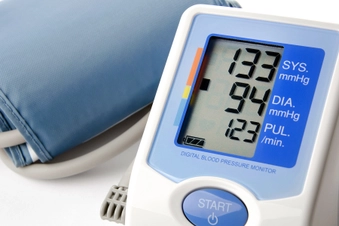10 Ways Sleep Obstructive Apnea Affects Your Health

Memory Loss
Researchers have linked obstructive sleep apnea (OSA) to memory and thinking problems. Some studies show that people with OSA are diagnosed with mild cognitive impairment 10 years earlier (on average) than people who don’t have the condition.

Surgery Complications
No matter the type of surgery, it’s riskier to go under general anesthesia when you have sleep apnea. That’s because the condition slows your breathing and can make you more sensitive to the effects of anesthesia. You might also have a harder time waking up and taking a breath after surgery.

Increased Risk of Type 2 Diabetes
When your breathing is interrupted during sleep, oxygen levels go down and carbon dioxide levels go up. Inflammation spikes, too. As a result, your body can’t use insulin as well. So the amount of sugar in your blood goes up, raising the risk of type 2 diabetes.

Obesity
Weight gain can be both a cause and a complication of sleep apnea. The lack of sleep can mess with the hormones that tell you it's time to eat. In other words, you may feel hungry when you shouldn’t. Sleep deprivation from sleep apnea can also lead to insulin resistance, which makes it harder to lose weight.

Cardiovascular Problems
The pauses in your breathing put pressure on the heart and blood vessels. Your blood pressure spikes, and the risk of hypertension, or chronic high blood pressure, goes up. So does your risk of a heart attack, stroke, and atrial fibrillation (irregular heartbeat).

Eye Issues
OSA can raise the pressure in your eyes’ blood vessels. It can also lead to problems like glaucoma. That’s a condition where fluid builds up in the eyes, which can damage your optic nerve. This could lead to vision loss. Floppy eyelid syndrome – eyelids that don’t stay closed during sleep – is another common issue with OSA. It can leave you with dry eyes and general eye irritation.

Mood Changes
People who live with OSA have higher rates of depression than the general population. Because you’re not getting restorative sleep, you’re more likely to be cranky and have a quick temper. Kids with OSA often have behavior issues in school.

Relationship Strain
The mood changes that can come along with OSA can have a negative impact on your relationships. And if you share a bed, your loud snoring may drive your sleep partner to another room.

Constant Fatigue
Feeling tired all the time is frustrating, but it can also be dangerous. The risk of making mistakes on the job or forgetting to take life-saving medications is higher. Along with falling asleep while driving.

Shortened Lifespan
Scientists have discovered that OSA speeds up the aging process and can knock several years off your life. But research suggests you can slow or reverse this with positive airway pressure (PAP).
Show Sources
IMAGES PROVIDED BY:
- Stone/Getty Images
- iStock/Getty Images
- E+/Getty Images
- DigitalVision/Getty Images
- iStock/Getty Images
- iStock/Getty Images
- E+/Getty Images
- iStock/Getty Images
- E+/Getty Images
- iStock/Getty Images
SOURCES:
News release, American Academy of Neurology.
Cleveland Clinic: “Why Sleep Apnea Can Cause Memory Problems Earlier in Life,” “Sleep Apnea Can Make Managing Diabetes More Difficult: What You Need To Know.”
American Society of Anesthesiologists: “Sleep Apnea.”
Mass General Brigham: “Sleep Apnea Symptoms.”
Mayo Clinic: “Sleep Apnea.”
Mayo Clinic Proceedings: “Sleep Disorders and the Eye.”
American Academy of Ophthalmology: “Obstructive Sleep Apnea and the Eye: The Ophthalmologist’s Role.”
Sleep Medicine and Disorders: “Depression, Obstructive Sleep Apnea and Psychosocial Health.”
Johns Hopkins: “The Dangers of Uncontrolled Sleep Apnea.”